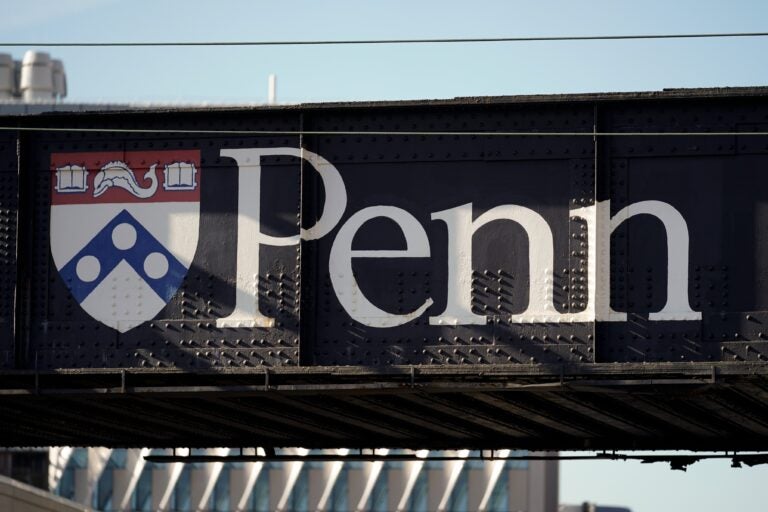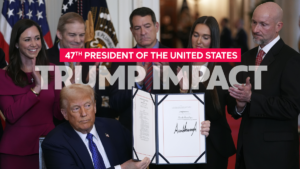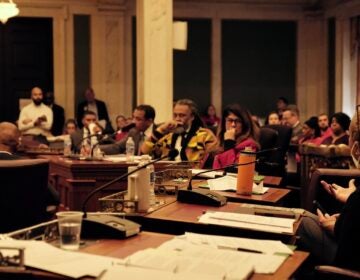University of Pennsylvania declines to sign Trump’s higher-education compact
President J. Larry Jameson said he sought a wide range of input so the response “reflected our values and the perspectives of our broad community.”

A University of Pennsylvania sign is seen in Philadelphia, Friday, Dec. 15, 2023. (AP Photo/Matt Rourke)
From Philly and the Pa. suburbs to South Jersey and Delaware, what would you like WHYY News to cover? Let us know!
The University of Pennsylvania has declined to sign onto the Trump administration’s higher-education compact, becoming the latest college to reject the terms of the agreement in exchange for priority access to federal funding.
In a brief statement released Thursday, university President J. Larry Jameson said the decision came after seeking input “from faculty, alumni, trustees, students, staff and others who care deeply about Penn.”
“At Penn, we are committed to merit-based achievement and accountability,” his statement reads. “The long-standing partnership between American higher education and the federal government has greatly benefited society and our nation. Shared goals and investment in talent and ideas will turn possibility into progress.”
A request for comment from the White House was not immediately returned Thursday afternoon. The press office for the U.S. Department of Education sent an automated email saying its employees are currently on furlough during the ongoing government shutdown.
The compact, which the department offered to nine schools, is the latest attempt by President Donald Trump’s administration to exert more control over the operations of the country’s higher education institutions through the allocation of federal funding.
If signed, the compact requires the colleges to cap international enrollment at 15% of the undergraduate student body, prohibit consideration of race, gender or political views during the admissions process, and commit to strict definitions of gender.
With those demands, as well as a requirement that universities alter their governance structures to prohibit anything that would “punish, belittle and even spark violence against conservative ideas,” critics say it would erode the independence universities have from political influence.
Pennsylvania Gov. Josh Shapiro said in a post on Instagram that the compact’s requirements “would limit freedom of speech, the freedom to learn, and the freedom to engage in constructive debate and dialogue in campuses across the country.”
“Penn has long been a crucial part of the fabric of this Commonwealth and needs no special consideration from the federal government — it needs only to be measured by its long legacy of excellence, and its continued commitment to supporting innovation and economic growth in Pennsylvania,” Shapiro said, “and I am in full support of the University’s decision and appreciate the leadership and courage demonstrated by President Jameson and Board Chair [Ramanan] Raghavendran.”
Penn had already acquiesced to one of the Trump administration’s requests earlier this year when it agreed to ban transgender athletes from participating in women’s sports and updated its records to remove those set by transgender swimmer Lia Thomas.
Trump and other conservatives say the moves are necessary to prioritize American students over those from overseas, set a fair playing field in college athletic programs, allow a better platform for conservative viewpoints on college campuses and prioritize education in the hard sciences. The compact requires colleges to freeze tuition rates for five years and give free tuition to students pursuing “hard science” programs at schools with endowments exceeding $2 million per undergraduate.
The University of Southern California also rejected the Trump administration’s compact Thursday.
Earlier this month, the Massachusetts Institute of Technology and Brown University turned down the invitation to sign the compact. MIT President Sally Kornbluth said the document “includes principles with which we disagree, including those that would restrict freedom of expression and our independence as an institution.”
WHYY is your source for fact-based, in-depth journalism and information. As a nonprofit organization, we rely on financial support from readers like you. Please give today.








